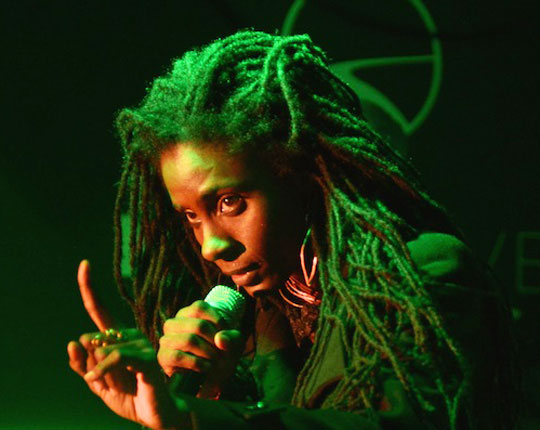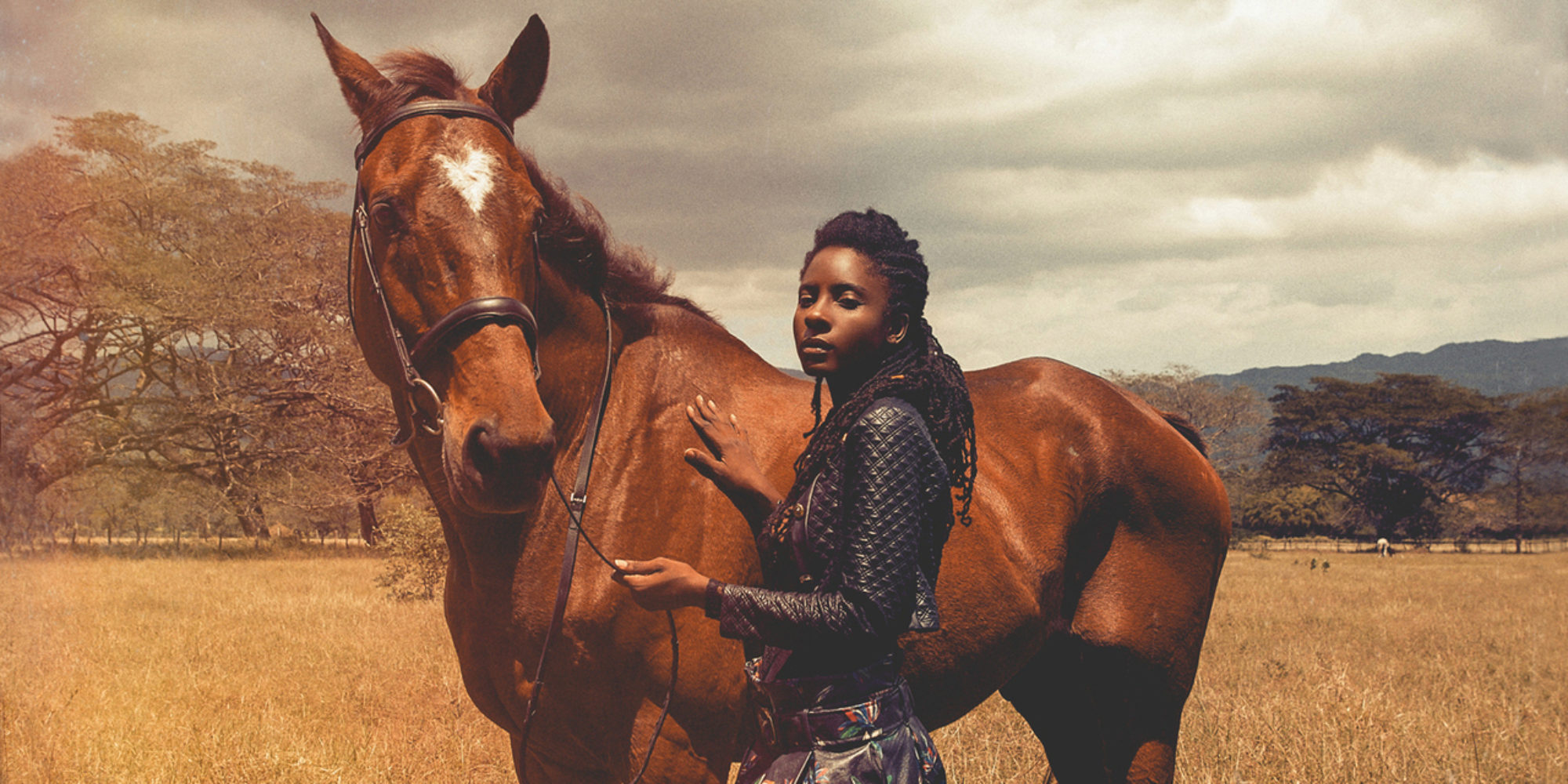Jah9 (AKA Janine Cunningham) is a rising star in Jamaican reggae. She spent her early years in the Jamaican countryside on the western edge of Jamaica. As she explained in our first interview with her in 2015, her father was a Baptist preacher and her mother a singer. They gave her a powerful education in the life of serenity and service, an experience that shaped her fundamental sensibility, well before she landed in the chaotic, high-pressure city of Kingston in 1991. Jah9’s third album, Note to Self (VP Records), comes out on March 13, 2020. It’s an expansive work, anchored in roots reggae but connecting with spoken word, r&b, hip-hop and more, and full of Jah9’s trademark life lessons. Afropop’s Banning Eyre reached Jah9 by telephone in New York to discuss the new album. Here’s their conversation.
Jah9, how are you? You are probably in the midst of 100 interviews.
It’s a little hectic, but it’s more the cold…
I don’t know if you remember, but the first time we met it was even colder. It was in a club in Brooklyn a few years ago and it was just one of those insanely cold days. So you seem to come at the wrong time of year.
Yes, well… I’m in a warm place now.
Good. I haven’t heard this album yet, just a couple of songs. I’m looking forward to digging into it. But maybe we could start by you telling me what was your concept for Note to Self.
O.K. Note to Self from a musical production standpoint is my first attempt at being fully collaborative, more than on any record I’ve done so far. I have some older producers like Clive Hunt and Errol Brown, who does some engineering on this record. And then I’m working with some of the newer young producers in Jamaica as well like Teflon, Zinc Fence, Romario “Runkus” Bennett, Iotosh Poyse, people that are perhaps unknown to you right now that but that are so talented. I wanted to extend myself this time around in terms of sound, and I’m really happy with the songs I’ve put together, the different sounds. And in terms of themes, I tend to be personal when I’m writing. But I think every album gets a step closer to me as an individual.
The first album, New Name, was my philosophy, my political self, and then the Nine album was more me as a spiritual person, another side of my philosophy. So then this album is more personal. I think it’s a more relatable record as well. I really tried to do more research in terms of my interactions with people and the social sphere. We kind of put an ear to the ground with this one, but still tuning in on my observations of the world, and sharing how I am also affected by some of the same issues that others are affected by. Instead of being ethereal, it’s more practical you might say.
Each song on the record is a note to myself. It is a more relatable way to address some of these issues, but it still does ring poetic, as is true of all of my music. Of course, it’s one thing to speak about a record, but the proof will be in the listening.

Absolutely. But for now, pick a couple songs and tell me about the notes to yourself they express.
O.K., I’ll give you an idea. For example, the song “Heaven” is kind of aspirational. Coming from my religious background, the idea of having us a place where you go when you die; this is how we are taught, especially we in the diaspora, the way we have been given religion, it’s supposed to be this idea that you suffer now and heaven is something you aspire to if you are good when you die. But really, it’s kind of taking on that idea and breaking it down in the relatable way.
I talk about facing obstacles, and so we are bringing heaven closer to home to say, “You know the experiences you are having. It’s really the choices you are making and how you choose to experience life that determine whether you experience it as heaven.” And this starts a conversation about mental health and kind of sitting in your own body and making your own decisions for your life and taking control and self-governance. The song really begins that discussion, and that’s a theme that runs through a lot of the songs on this record.
The title track, “Note to Self”—otherwise known as “Okay”—is a feature with Chronixx, and that song speaks even more specifically to the album theme. It brings forward that “Heaven” theme a little more to talk about being O.K., with all the things that are happening in the world now, outside and inside, you are just being O.K. in the midst of it, and choosing to be O.K. as opposed to being O.K. a result of your environment. It’s actually a choice that you are making. The refrain says, “Even if it isn’t, it’s going to be O.K..” So you’re talking about a beautiful life, but even if it isn’t, you’re going to be O.K.. Whether you’re talking about adversity, even if it isn’t, I’m going to be O.K.. So it’s like a refrain, like mantra music, still in that vein of affirmation.
There are some songs where I kind of play with the flow of my delivery, touching more on my spoken word background as well as my love for more contemporary sounds, like hip-hop and all of that. We do have other influences. For example, “Ma’at (Each Man),” has that kind of mix and flow. It has roots, and then it goes into this deep dub, and that it brings in some modern electronic drum instrumentals, and then my flow kind of changes around. In the middle it goes into a kind of up-tempo, chopping style, and then it goes back to the roots. So I’m experimenting with sound. But the feelings are still very much in the vein of introspection and reflection on self, before pointing the finger. That’s what my art is about. It’s about self-balancing and being accountable for your actions before you judge others. These are the things I tell myself every day. We are all working on being a better person every day, but we still struggle with some of the same vices that everyone else does.
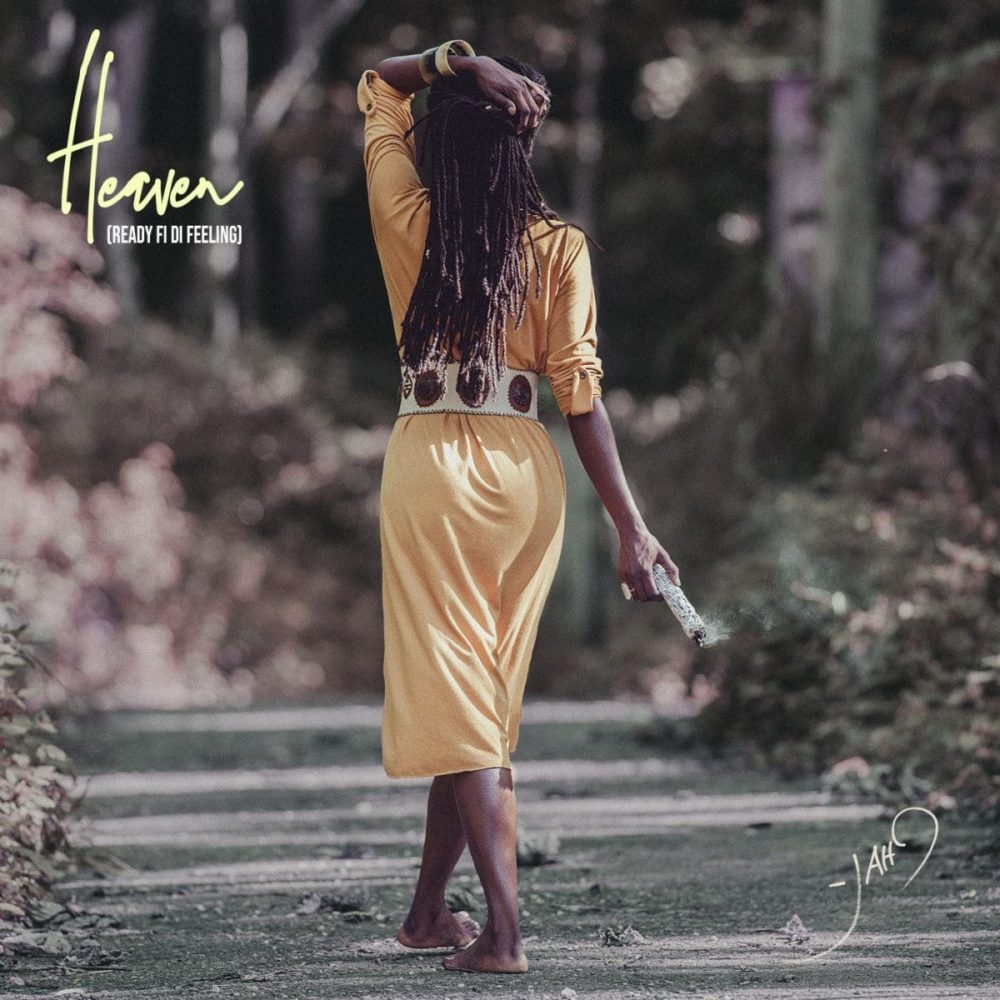
That message is very appropriate to these times. We all have a lot of problems, but we have to carry on.
Especially in the social media age, where people are so overly emotional and so invested in their opinions and what other people think of them. It’s just so rare that you find people taking the time to be alone to value stillness and silence and stillness and patience, compassion for others. So we are really trying to be revolutionary in our love.
Let’s talk about the musical styles here. When we first met, you spoke of yourself as something of a revivalist of roots reggae. Now you’re working with young producers. Talk about this evolution.
Well, the idea of reggae revival is something that was really put on us. It is not a limitation at all. I think of myself as being a Jamaican and Rastafari. I don’t feel limited to express myself in only one way. But I feel inspired to use the music that I love, and so the heavy drum-and- bass-driven rhythms will always be something that you will feel throughout the music, but I’m influenced by other genres, and especially having to work with a label, you are forced, quite frankly, to consider things. They want you to go outside of your comfort zone of creation, to find that middle ground to sell a record. I had to spend a lot of time in myself just thinking about how I can remain true to my inspiration whilst still working with others, I mean a label, and those who have commercial expectations. And I think I was able to find… I wouldn’t even say a middle ground. I think I am more satisfied with this.
As it should be.
I’m O.K. with it. I don’t think I’ve strayed too far from my core roots, because it’s still really heavy. But I’ve always loved to experiment. So on each of my albums you will feel my experimentation. It’s just that I’m now drawing on more contemporary sounds as opposed to just jazz, etc. So it’s more contemporary. It’s not necessarily contemporary Afrobeat, but more in the vein of a Fela Kuti as opposed to the more minimalist type of Afrobeat now. It’s very rich and big and full of live instrumentation. But I did want to experiment those more minimalist type of electronic songs as well, because there is a place for it. As much as the music is very crucial to me—that word sound; that is how I serve. It is with the words. But moving across different genres and playing with sound is the consistent element behind the message and the spirit of the music.
You are with VP Records now.
That’s right.
I recently reviewed VP’s 40th anniversary box set, which was kind of an education for me. I mostly cover African music, but my roots are in reggae, really the reggae of the '70s and early '80s. So it was interesting to kind of take that journey. VP is a label that touches on so many aspects of reggae, so I would imagine that even if they are encouraging you to do something outside your comfort zone, as you say, I guess I would be inclined to trust them, maybe more than other labels. Do you feel that way?
No, I don’t feel that way. I feel that they have an extensive catalog. And they have a few people there who are very sensitive to the history. I don’t know that they as a label represent what you say. But I do see that they are in a very unique position to provide an artist like me a bit more freedom than another major label. Because they are Jamaican and they do have that sensitivity and that catalog that would make them more inclined to allow us as reggae artists to be more ourselves.
That makes sense. I am interested to see that you’re taking a trip to Kenya later this year. To Nairobi. Have you done much traveling in performing in Africa? And why Kenya?
I haven’t done as much as I want to. I’ve been to Kenya maybe three times and to South Africa once. Traveling the continent and performing is part of what inspired me to become an artist in the first place. There is no greater mission for me. Which is a little unorthodox to hear artists say. But for me, as I said, I am very mission oriented. I’m not a typical artist. My aspirations aren’t necessarily the same as my colleagues. I want to serve. I am the child of servants, social servants, people who serve their communities in different ways. That includes my mother and father and my grandparents on both sides. So it’s quite natural for me to want to serve. And I think that a lot what’s missing is that we are not having the right conversations. Our people are not well informed about their heritage and their history, and the reasons why they should be proud and why they should carry themselves with more dignity. And we're facing major crises in terms of skin-bleaching and just an overall lack of self-love.
And this stretches beyond just black people. This is an “in-general” kind of reality. I studied psychology in school. I’m a social scientist, so these are the things that affected me before I even decided I wanted to be a musician, and they stay with me. So this opportunity to go to Kenya… I’m going to Kenya not only as a musician, but primarily for a retreat, a yoga-focused retreat, mindfulness, just giving people an opportunity to come and experience the continent, experience the country of Kenya, and see a different way of life, a different perspective, have a new experience. For some it’s one of those bucket-list kind of experiences. So this is giving people an opportunity to shift their focus away from the hustle and bustle of the West, and to see and have a real authentic experience of themselves and of the continent. And in doing so, I have been afforded the opportunity to do some music in Kenya as well. Afterwards, we are intending to extend the trip into Ethiopia, to share the music with the ones in Ethiopia before we head across to the U.K. to share the album there as well. Because you know, on the continent and in Europe and the U.K., there’s a lot of love for me. They really receive the messages, perhaps even more willingly that the people of the West, I want to say.
Of course the Jamaican presence in the U.K. is deeply rooted.
And the African presence as well.
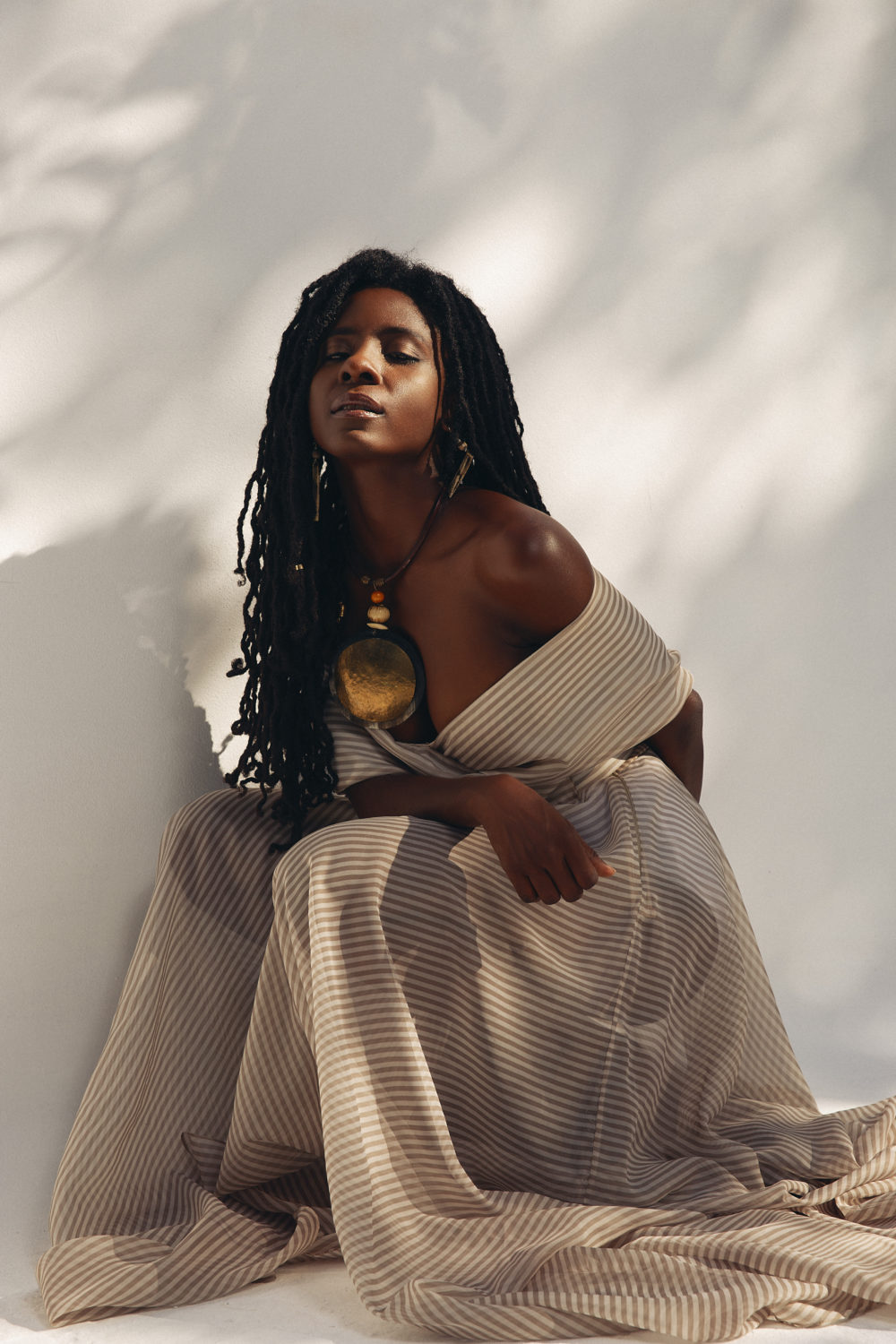
I am interested in your practice and promotion of yoga. As a casual practitioner myself, I understand the power of yoga. Is this something you been into a long time, perhaps as long as music?
Definitely. It has been. Actually, when I trained and did my first teacher training, it was the same year as I released my first official record as an artist. So the two have kind of moved hand-in-hand through the years, over the past almost decade. So it really has been a hand-in-hand process, and quite intentionally so. Because as I said, this is my service. I’ve seen the transformational effects that yoga can have on an individual, and on a group of individuals, and especially for people in the diaspora. The way that yoga has been taught here in the West, it feels like a commercial thing. I feel like a high-end elitist kind of thing. People of the diaspora are unfamiliar with that, and they have been indoctrinated into their Judeo-Christianity. They look at yoga as an evil thing, and they are very, very dismissive of it. And I had to do all lot of work, even here in Jamaica over the past decade, to kind of sensitize people to the fact that, no, yoga is an ancient tradition. Its roots are in Africa. It is not something to be afraid of. It is something that will give us powerful access to healing and to different aspects of ourselves, and breath, and meditation. And 10 years later, I’m really proud of where we are as a people. In Jamaica, yoga is really growing. We even have yoga festivals and yoga events and more yoga studios opening up, and more teacher-training retreats. So the community is growing, and I feel really happy to have been part of that growth.
That’s fascinating. I see how you might have the resistance of people associating yoga with a foreign religion. That has an element of truth to it, but that’s not what it’s really about. It has so much power on a human level. Now, I imagine in Kenya, they might not be quite as receptive to the herb message… although it is coming around here in America, bit by bit.
Well, you know, I’m used to pushing against the grain. I’m not at all intimidated by that challenge. I think it’s so important. And herb, just like yoga, is so important. It’s so crucial. Your body has an endo-cannabanoid system; the mere fact is this is something your body needs. I don’t promote smoking and getting wasted. I promote using the herb in a sustainable way. I promote growing your own herb, and using the leaves, because it’s in the leaves that you get a lot of the nutrition and the medicine. So using the leaves in your shakes, or cooking it, or having it raw, or making your smoothies with it. That’s not a psychoactive way of using it. And if you’re going to use the flowers, use a steam chalice, which is like an ital vehicle, like a natural vapor release rather than burning it and releasing the carcinogenic, or the potentially harmful qualities. So there are lots of ways it can be done in a very wholesome way, and that’s what I promote. I promote a lifestyle of eating well and treating your body with love, and treating your mind with love, and resting and eating, being gentle with yourself. These are the things that I’m promoting, like I said, in a revolutionary way.
I’m known to be militant and serious. This is the way I come off, but upon meeting me and seeing how I live and what I promote, I think the most revolutionary thing about me is that I will always choose love. I will always choose a way to build a bridge. I do believe in it. It’s so easy to be dismissive and angry and reactive. It’s much harder and much more revolutionary to love, to choose understanding and softness. That is the feminine, and that is what we are moving towards in this age as a people. I’m embracing that and endorsing that. I promote introspection, going into the darker recesses of your mind, sitting with our demons and facing them and challenging them, embracing the dark parts of ourselves so we can overcome and really get to know ourselves separate from what people want from us or any other expectations. That is hard work. That is the female way. That is the feminine. When you see the yin and the yang, that represents the feminine, the unknown, the place where everything comes from.
This sounds like lifestyle medicine, treating yourself in advance by the way you live rather than waiting to succumb to illness.
This is the way of Rastafari. It’s always been this way. This is the indigenous way, the original way. Mankind has moved away from his origins, and Rastafari has always been representing agency, and representing the principles of living with the earth and respecting the earth and respecting yourself and celebrating family and meditation through the use of herb, through the use of stillness, through the use of chanting. These are indigenous ways. These are ancient things. Yes, it’s now “trending.” But it has always been the way.
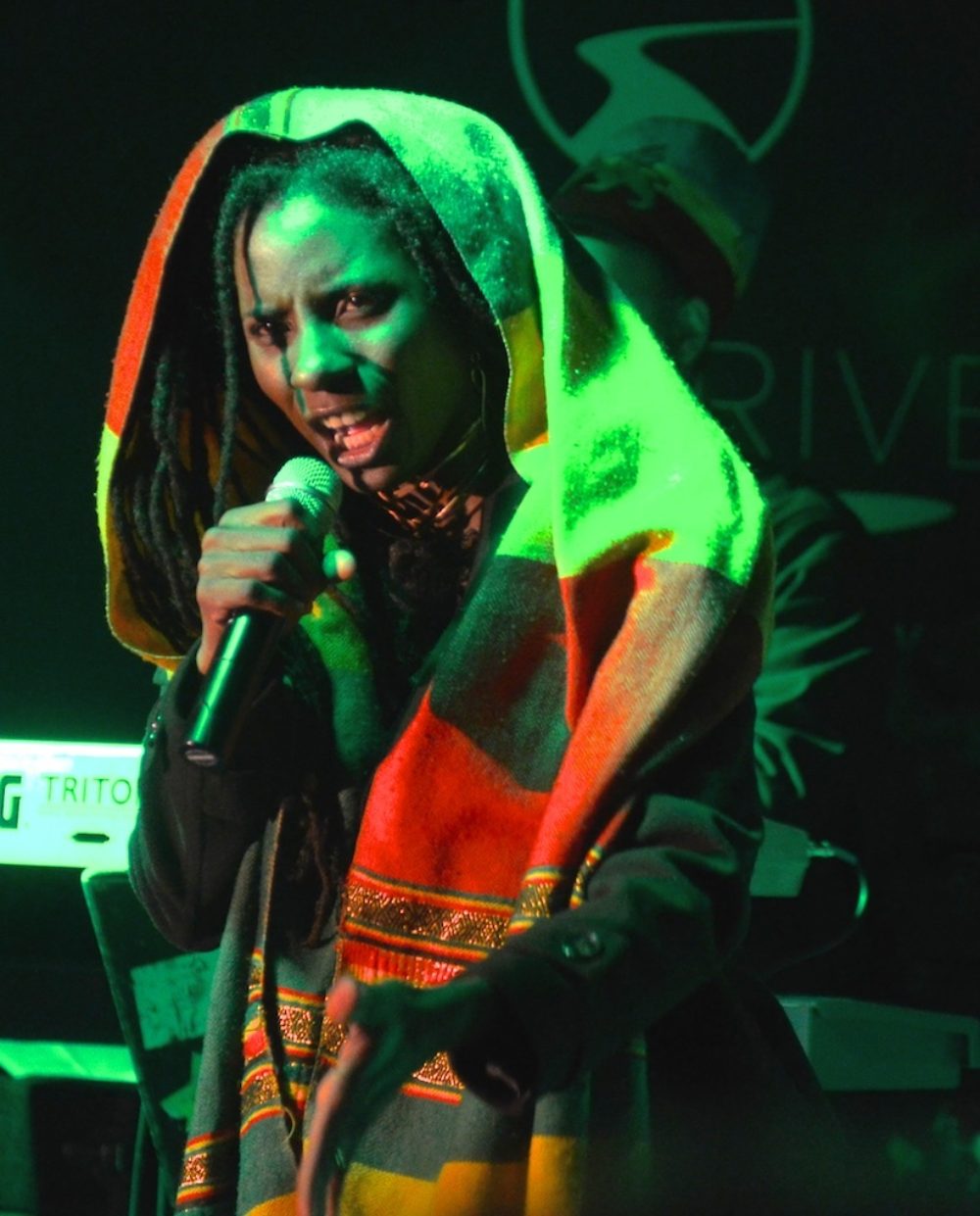
It is interesting about herb. It was recently legalized in Canada where I spend time, and I know people who never were users but who now are growing beautiful plants and making all kinds of things with them in discovering other uses. It was just the fact of it becoming legal that kind of opened the door for people to see it that way. And I find that remarkable.
I think it is beautiful. But it’s a little bittersweet, you must understand as well, because there are those of us who’ve never accepted the idea that you can legislate this plant and people have been imprisoned for it and beaten and even slaughtered for it. So now everybody thinks it’s something they can grow in their backyard. That’s food, but many have had to suffer for that. Many are still in prison for it. So we give thanks and we celebrate progress, but we also do not forget the hypocrisy.
So true. And especially in this country. The statistics tell a very dark story along those lines. Let’s come back to music. When does the new album come out?
The album comes out on March 13. We are organizing a tour for April. You can look for dates in April in North America.
I look forward to that. I very much enjoyed your performance a few years ago.
Beautiful.
Thanks so much. Stay warm. Lovely to talk with you.
We’ll talk again soon. When you hear the album, I’d love to hear what you think.

Related Articles
